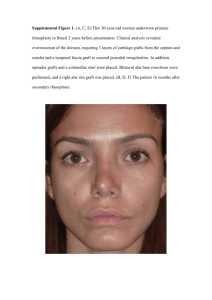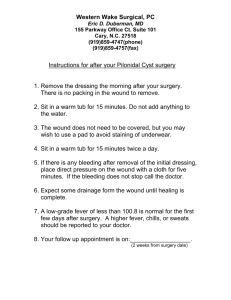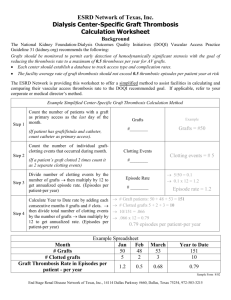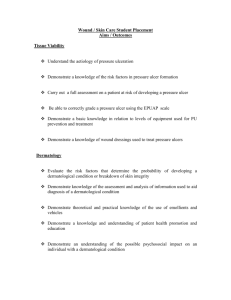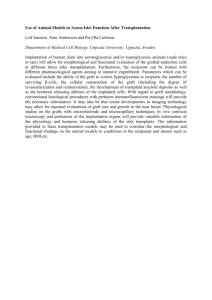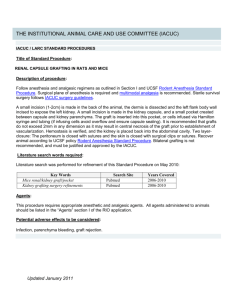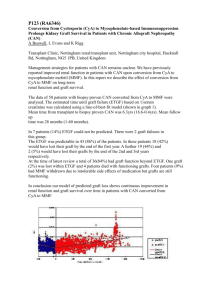Skin Grafting
advertisement
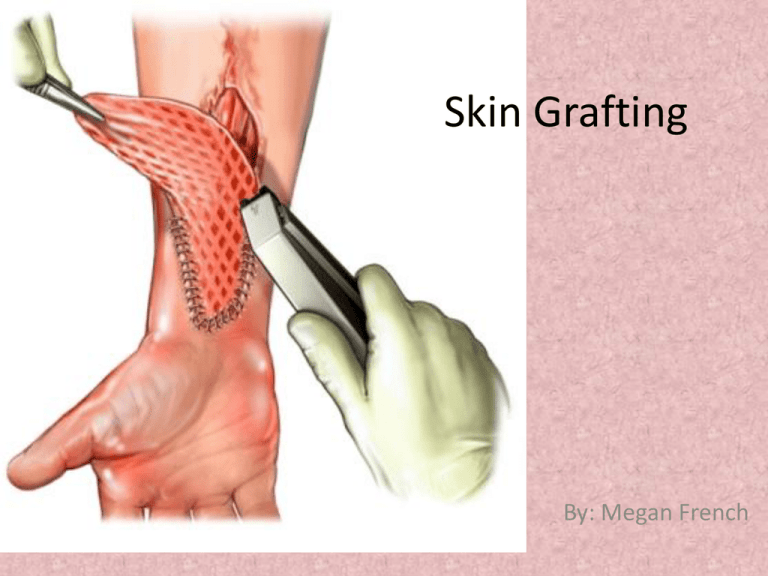
Skin Grafting By: Megan French The Skin The skin is the largest organ of the body 3 main layers : Epidermis, Dermis, Subcutaneous Regulates body temperature It protects the body from external agents and potentially deadly infections What is Skin Grafting • A skin graft is a patch of skin that is removed by surgery from one area of the body and transplanted, or attached, to another area. • Often skin will be taken from unaffected areas on the injured person and used to cover a defect, often a burn. • Skin may be meshed to stretch it into a larger patch • Taking the graft from the injured person makes rejection of the tissue unlikely. History • In the 19th century physicians developed methods to transplant skin from one place on the body to another • Covering an open non healing wound decreases the amount of time that the wound is exposed to bacterial micro organisms. Harvest Site Most often skin for a skin graft is taken from the persons thigh or buttocks Incision • Skin taken using a dermatome • The patient is under either a local anesthesia or general anesthesia Procedure • Skin grafts will not take on exposed bone, tendon or an infected wound Post Surgery •Usually heal with little scarring •Successfully protects the body from infection and bacteria •The donor area heals on its own within 2-3 weeks Complications • • • • • Failure, or non-take Color difference Contraction Meshed appearance Dryness, scaling etc References • http://www.google.com/imgres?q=skin+graft&h • http://www.sciencephoto.com/media/265808/enlarge • All pictures used from Google Images for education purposed only • http://www.burnsurvivor.com/surgical_procedure_skin grafts.html • Mackay DR, Miraliakbari R, eds. Skin grafts. Operative Techniques in General Story. December 2006; 8(4);197206. • Journal of Plastic, Reconstructive & Aesthetic Surgery Volume 63, Issue 2, February 2010, Pages 360-364 • Ann Plast Surg. 1988 Oct;21(4):358-65.


